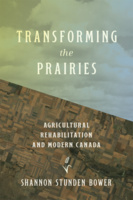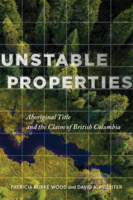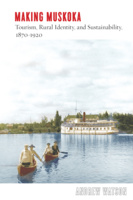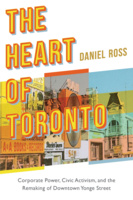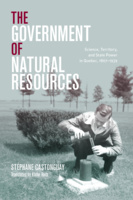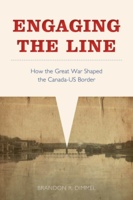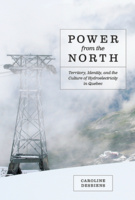Transforming the Prairies
Agricultural Rehabilitation and Modern Canada
Transforming the Prairies critically reassesses Canada’s Prairie Farm Rehabilitation Administration in light of its involvement in ecological changes and its role in consolidating colonialism and racism.
Unstable Properties
Aboriginal Title and the Claim of British Columbia
Unstable Properties convincingly argues that the so-called land question in British Columbia cannot be resolved without understanding the fundamentally unstable ideological foundation of land and title arrangements on which the province rests.
Making Muskoka
Tourism, Rural Identity, and Sustainability, 1870–1920
Making Muskoka traces the first decades of Muskoka’s transformation from Indigenous homeland to a part-time playground for tourists and cottagers and uncovers the consequences for those who lived there year-round.
The Heart of Toronto
Corporate Power, Civic Activism, and the Remaking of Downtown Yonge Street
From the sidewalk to City Hall, in the corporate boardroom, and around the kitchen table, The Heart of Toronto traces the power dynamics and projects that have transformed downtown Toronto.
The Government of Natural Resources
Science, Territory, and State Power in Quebec, 1867–1939
The Government of Natural Resources is a revealing look at how science can extend state power through territorial and environmental transformations.
A Bounded Land
Reflections on Settler Colonialism in Canada
In this beautifully crafted and written volume, Canada’s preeminent historical geographer traces how Canada’s geographical limitations have shaped the nature of its settler societies – from first contacts, to dispossession, to our current age of reconciliation.
West Ham and the River Lea
A Social and Environmental History of London’s Industrialized Marshland, 1839–1914
This original account of industrial London’s expansion into West Ham’s suburban marshlands highlights how pollution, poverty, and water shortages fuelled social democracy in Greater London.
Engaging the Line
How the Great War Shaped the Canada–US Border
Engaging the Line explores how the First World War forever changed the Canada–US border by examining reactions to increasingly strict security measures in six adjacent border communities.
Coping with Calamity
Environmental Change and Peasant Response in Central China, 1736-1949
The first environmental and socioeconomic history of the Jianghan plain in central China, focusing on the peasants’ relationship with a volatile environment.
Power from the North
Territory, Identity, and the Culture of Hydroelectricity in Quebec
This book explores how French Canada’s aspirations migrated north with natural resource development, creating a culture of hydroelectricity that continues to shape territorial planning and relations with Aboriginal peoples in the province.

